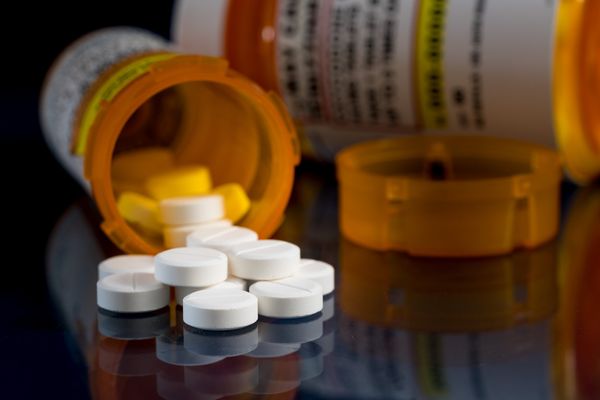If you counted on your fingers your motives to pick up a glass of wine or your alcoholic beverage of choice, you might quickly run out of fingers, especially when times get rough.
It's no wonder sales of alcohol surge during stressful times, and in many places, alcohol is considered "essential." Newsweek reports that U.S. alcohol sales saw a 55 percent increase in one week during the coronavirus pandemic, according to market research firm Nielsen.
We're all familiar with reasons to drink, which may include: to be sociable, for enjoyment, for ritualistic purposes, to escape problems or unpleasant emotions or to deal with stress.
While there are certain times you might feel more inclined to turn to alcohol than others, experts find that people who turn to alcohol to cope with problems and stress (known as "drinking for negative reinforcement") are in more danger of their drinking turning into abusive or heavy drinking than those who use it for social occasions ("drinking for positive reinforcement").
If your drinking tends to be more of the former than the latter, and you find yourself turning to alcohol lately with increased frequency and quantity, there are many reasons to pay attention.
Alcohol may help relieve or deal with stress, and help you relax — in the short term. But in the long run, alcohol can contribute to those very same feelings you are trying to fight: anxiety and depression. Often the depression comes first, followed by alcohol to help fight it. But it's reported that people who are depressed and drink too much have more frequent and severe episodes of depression. What's more, alcohol can dampen the effects of antidepressants.
Alcohol is a central nervous depressant that, over time, alters some of the brain chemicals that regulate mood. It releases brain chemicals that block anxiety; but then your brain doesn't have enough of those chemicals you need when the anxiety returns (and it will), and the vicious cycle begins anew.
Consider, too, that alcohol affects your body's immune response to disease, disrupting the immune pathways, which in turn impair your body's ability to fight infection and recover from injury. Research finds that microbes in the gastrointestinal tract — the first point of contact for alcohol as it passes through your body — are altered, and it's these microorganisms that help keep your gut functioning normally. Experts at Cleveland Clinic say that "abusing alcohol causes bacteria to grow in your gut," which then can migrate to the liver, leading to liver damage.
The same research finds that alcohol consumption is linked to pulmonary disease, pneumonia and other respiratory illnesses, because it disrupts the ciliary function in the upper airways and impairs the function of immune cells. You don't necessarily have to be a chronic, long-term drinker, either: this can occur with acute binge drinking, too.
Other negative health effects from too much alcohol include the risk of cardiomyopathy and heart arrhythmias and developing high blood pressure, pancreatitis and some cancers. Alcohol also disrupts your sleep. While having one drink may help you fall asleep faster, as your body processes the alcohol its sedative effects wear off, and you might find yourself waking frequently throughout the night or sleeping restlessly.
While some studies show light to moderate amounts of wine or beer could have health benefits, others show a link between excessive alcohol consumption and disruptions to the body's immune system — which could make someone more susceptible to diseases, including COVID-19. It's worth noting that the Centers for Disease Control characterize immunocompromised individuals as most at risk of contracting coronavirus.
Find out what a cardiologist says about alcohol and your heart.
If you're feeling anxious, stressed, isolated or depressed, you're in good company. Here are some healthy ways to cope.
Take breaks from news stories and that includes social media. There's so much information out there, which is a valuable thing. But too much can hurt your mental and emotional state.
Take care of your body Rest, stretch, exercise, meditate, take deep breaths, eat right and get enough sleep. Take a warm bath, light a favorite candle, play some relaxing music or watch a movie (extra points if it's a comedy).
Connect with others Friends and loved ones can be a great comfort during difficult times and help relieve loneliness and feelings of isolation. You may not be able to connect in person, but FaceTime, Zoom and other programs will let you see their faces, which can lessen the loneliness.
If you are worried about your alcohol consumption, speak to your healthcare provider. You can also reach out to a number of free resources:
The Substance Abuse and Mental Health Services Administration (part of the U.S. Department of Health and Human Services) offers a free National Helpline, 1-800-662-HELP (4357), available 24/7.
Alcoholics Anonymous
National Institute on Alcohol Abuse and Alcoholism (part of the National Institutes of Health)
- Is Watching TV a Good Way to Manage Stress? ›
- What Happens If Stress Is Left Untreated? ›
- A Cardiologist Explains Whether Alcohol Is Good for Your Heart - HealthyWomen ›







